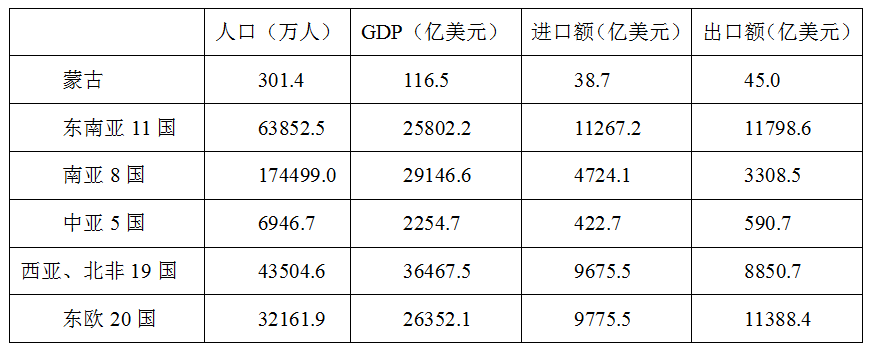考研英语阅读突破――理解作者态度
 查字典公务员网
查字典公务员网
考研英语阅读中有一种题型是考察对作者态度的把握。今天,查字典公务员考研英语名师杨凤芝老师就带大家学习如何理解作者的意图、观点和态度。
该题型常问作者对某事是什么态度:主观(subjective)还是客观(objective) ;肯定(positive)还是否定(negative) ;赞成(approval)还是反对(opposition)等等。解题的关键是要看作者在文中用了什么样的口气。若用褒义词,显然是赞成。若用贬义词,显然是反对。若客观陈述,则是中性的立场,不偏不倚。注意:作者态度常常在转折词后表明出来。所以,but一词至关重要(还有类似的yet, however, although, nevertheless等).
【举例说明】
这种题目对考生而言难度较大,迷惑性也较强,因为命题专家是针对整篇文章设问,考生很难找到具体对应的语言点,所以要把握整篇文章。例如作者在谈一件事时是用反讽的口气,还是赞成的语气,此类题所给的答案选项一般是四个形容词,考生应在审题时就把握好这四个形容词所表达的意思,然后返回文章去寻找感觉。特别提醒考生要牢记所遇到的构成作者态度题选项的每一个形容词。做文章作者态度题时,千万不要把考生自己的态度揉进文章中,同时要注意区分作者本人的态度与作者引用的观点态度。
一、整体态度。文章作者态度是作者说话的口吻,不是考某一个语言点,而是文章中数个语言点串起来的一根线给读者的整体感觉。
例如2002年55题:
Could the bad old days of economic decline be about to return? Since OPEC agreed to supply-cuts in March, the price of crude oil has jumped to almost $26 a barrel, up from less than $10 last December. This near-tripling of oil prices calls up scary memories of the 1973 oil shock, when prices quadrupled, and 19791980, when they also almost tripled. Both previous shocks resulted in double-digit inflation and global economic decline. So where are the headlines warning of gloom and doom this time? The oil price was given another push up this week when Iraq suspended oil exports. Strengthening economic growth, at the same time as winter grips the northern hemisphere, could push the price higher still in the short term. Yet there are good reasons to expect the economic consequences now to be less severe than in the 1970s. In most countries the cost of crude oil now accounts for a smaller share of the price of petrol than it did in the 1970s. In Europe, taxes account for up to four-fifths of the retail price, so even quite big changes in the price of crude have a more muted effect on pump prices than in the past. Rich economies are also less dependent on oil than they were, and so less sensitive to swings in the oil price. Energy conservation, a shift to other fuels and a decline in the importance of heavy, energy-intensive industries have reduced oil consumption. Software, consultancy and mobile telephones use far less oil than steel or car production. For each dollar of GDP (in constant prices) rich economies now use nearly 50% less oil than in 1973. The OECD estimates in its latest Economic Outlook that, if oil prices average $22 a barrel for a full year, compared with $13 in 1998, this would increase the oil import bill in rich economies by only 0.25%-0.5% of GDP. That is less than one-quarter of the income loss in 1974 or 1980. On the other hand, oil-importing emerging economiesto which heavy industry has shiftedhave become more energy-intensive, and so could be more seriously squeezed. One more reason not to lose sleep over the rise in oil prices is that, unlike the rises in the 1970s, it has not occurred against the backbone of general commodity-price inflation and global excess demand. A sizable portion of the world is only just emerging from economic decline. The Economists commodity price index is broadly unchanging from a year ago. In 1973 commodity prices jumped by 70% and in 1979 by almost 30%.
From the text we can see that the writer seems.
[A] optimistic
[B] sensitive
[C] gloomy
[D] scared
本段开头用设问句引出问题,再通过严谨地分析,结合数字的对比,得出乐观的结论。据此,我们可得知作者的态度从总体上是乐观的,积极的,故A为正确答案。
二、 局部作者态度题,此类题目考查考生对局部细节所体现出的作者态度的理解,因此做此类题时,考生不能再像前一种态度题一样去找感觉,而应当回到文章局部上,落到实处。
例如1996年62题:
In the last half of the nineteenth century, capital and labour were enlarging and perfecting their rival organizations on modern lines. Many an old firm was replaced by a limited liability company with a bureaucracy of salaried managers. The change met the technical requirements of the new age by engaging a large professional element and prevented the decline in efficiency that so commonly spoiled the fortunes of family firms in the second and third generation after the energetic founders. It was moreover a step away from individual initiative, towards collectivism and municipal and state-owned business. The railway companies, though still private business managed for the benefit of shareholders, were very unlike old family business! At the same time the great municipalities went into business to supply lighting, trams and other services to the taxpayers. The growth of the limited liability company and municipal business had important consequences. Such large, impersonal manipulation of capital and industry greatly increased the numbers and importance of shareholders as a class, an element in national life representing irresponsible wealth detached from the land and the duties of the landowners; and almost equally detached from the responsible management of business. All through the nineteenth century, America, Africa, India, Australia and parts of Europe were being developed by British capital, and British shareholders were thus enriched by the worlds movement towards industrialization. Towns like Bournemouth and Eastbourne sprang up to house large comfortable classes who had retired on their incomes, and who had no relation to the rest of the community except that of drawing dividends and occasionally attending a shareholders meeting to dictate their orders to the management. On the other hand shareholding meant leisure and freedom which was used by many of the later Victorians for the highest purpose of a great civilization. The shareholders as such had no knowledge of the lives, thoughts or needs of the workmen employed by the company in which they held shares, and their influence on the relations of capital and labour was not good. The paid manager acting for the company was in more direct relation with the men and their demands, but even he had seldom that familiar personal knowledge of the workmen which the employer had often had under the more patriarchal system of the old family business now passing away. Indeed the mere size of operations and the numbers of workmen involved rendered such personal relations impossible. Fortunately, however, the increasing power and organization of the trade unions, at least in all skilled trades, enabled the workmen to meet on equal terms the managers of the companies who employed them. The cruel discipline of the strike and lockout taught the two parties to respect each others strength and understand the value of fair negotiation.
The author is most critical of .
[A] family firm owners
[B] landowners
[C] managers
[D] shareholders
在谈到family firm owners 时,作者只是说:通过雇用一大批专业人员,这一变化适应了新时代的技术要求,防止了效率的下降。而效率的下降通常是家族公司在精力充沛的创立者之后的第二三代破产的原因。这是很客观的表述,在谈到landowners时说:对资本与企业的如此大规模的非个人运作大大增加了作为一个阶层的持股人的数量及地位的重要性。国民生活中这一现象的出现代表了不由个人负责的财富与土地及土地所有者的义务的分离,这也在同样程度上意味着(不由个人负责的财富)与经营管理责任的分离。也是很客观的表述,没有表明自己的态度。C选项在原文中有两处提及,但都是指带薪经理,对经理并没有进行任何批评性评论,因而也不符合题意。只有D选项对应原文中The shareholders as such had no knowledge of the lives, thoughts or needs of the workmen employed by the company in which he held shares, and his influence on the relations of capital and labour was not good.像这样的持股人对所持股票公司雇用的工人的生活,思想和需求一无所知,他对资本与劳工关系没有什么好的影响。 显然,作者对这种持股人持批判的态度,所以D是正确答案。
【学习指导】
考研的文章全部是来源于英美国家国内杂志上发表过的议论文,那么根据议论的特点议论的论点必须鲜明。如果一个论点不鲜明的文章投稿的话,报社自然是不会采用的。如果这个议论文谈论的话题是男女平等的问题的话,那么作者的情感态度必然是支持男女平等的。因为我们考察的文章是议论文,这样就在某种程度上决定了我们在做情感态度题目的时候必须按照议论文的特征来解答。议论文的特征也正是情感态度题的命题的逻辑的缺陷,成为我们解题的关键。



 返回首页
返回首页










